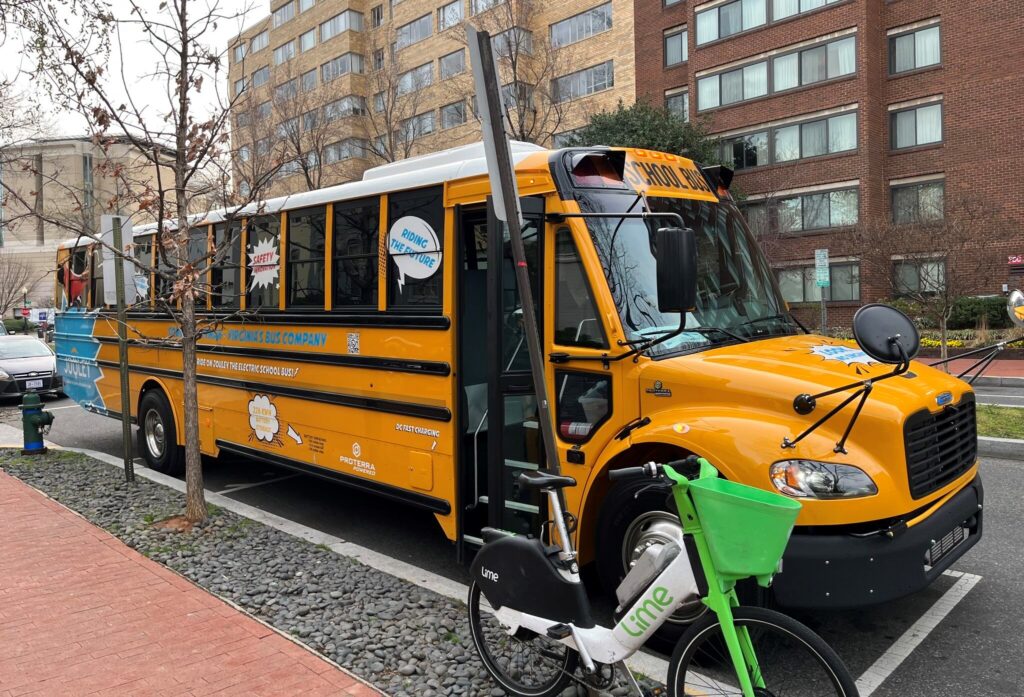More than 50 school leaders from 16 states recently traveled to Washington, D.C., for the first-ever Clean Energy Schools Symposium—a national meeting of school decision-makers who have flipped the switch to clean energy and are actively inspiring and supporting other schools across the country to do the same.

National clean energy nonprofit Generation180 hosted the March 26-28 gathering to elevate the role of the K-12 education sector as a force toward building a clean energy future in the U.S. The program brought together members of Generation180’s School Leadership in Clean Energy (SLICE) Network, a group of superintendents, facilities directors, transportation directors, and other education leaders.
During the symposium, attendees heard from federal leaders at the U.S. Departments of Education, Energy, and Transportation, as well as the U.S. Environmental Protection Agency. They also participated in workshops with clean energy and clean transportation experts and learned from their peers, from Massachusetts to Oregon, who shared success stories and best practices.
‘An Important Role’
With a school building in every community, K-12 schools are well-positioned to lead on clean energy, and U.S. schools are reaping the benefits of cost-savings, resiliency, and cleaner air for their students and communities.
For example, a recent report from Generation180 found nearly 1 in 10 public schools have a solar installation. Dr. Michael Hester, superintendent of Batesville Public Schools in Arkansas, said, “Saving money with solar energy has been a game-changer for our district by enabling us to raise pay and retain quality teachers.”
“With nearly 55 million students attending approximately 130,000 K-12 schools, the education sector has an important role to play in addressing the climate crisis and helping the country transition toward a clean energy future,” said Wendy Philleo, executive director of Generation180. “Our schools should be clean-powered, resilient centers in the community where students, families, and community members can learn about how to help build a brighter future together.”
Electrifying Topics
Symposium topics included goal-setting to reach zero-emissions targets, understanding the cost-savings and resiliency benefits of microgrids (solar plus energy storage), and an overview of the federal funding opportunities for schools to pursue clean energy and energy efficiency upgrades.

One entire day of the meeting focused on electric-powered school buses where participants discussed benefits and challenges to electrifying school bus fleets, as well as received expert advice on creating a fleet-wide bus electrification plan.
Sue Gander, director of the World Resources Institute’s Electric School Bus Initiative, noted, “Given the disproportionate impact of poor air quality and climate change on low-income students and students of color, investments in clean technologies—like renewables and electric school buses—have a central role to play in advancing environmental justice in school communities.”
